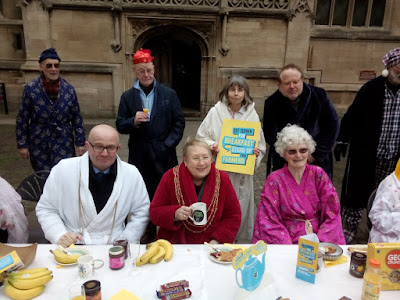This week, I was published on the ICE Civil Engineer blog explaining
how engineers can use our development action plans and CPD records to grow our own careers and serve society better.
I have written previously about the challenges within my
discipline to adapt to the increased frequency and impact of extreme weather
events, as illustrated in this article from Iain McKenzie reflecting on the
challenges of maintaining earthworks for Welsh roads (“Can we make it rain less
in Wales, or maybe flatten out some of those pesky mountains? If not, are we
headed for a managed decline in performance?")
But when engineers talk about climate change, we have a tendency to focus on
adapting to its effects rather than addressing the root cause, so a key
objective for me this year is to improve my understanding of low carbon and
energy saving solutions which are applicable to the rail sector.










